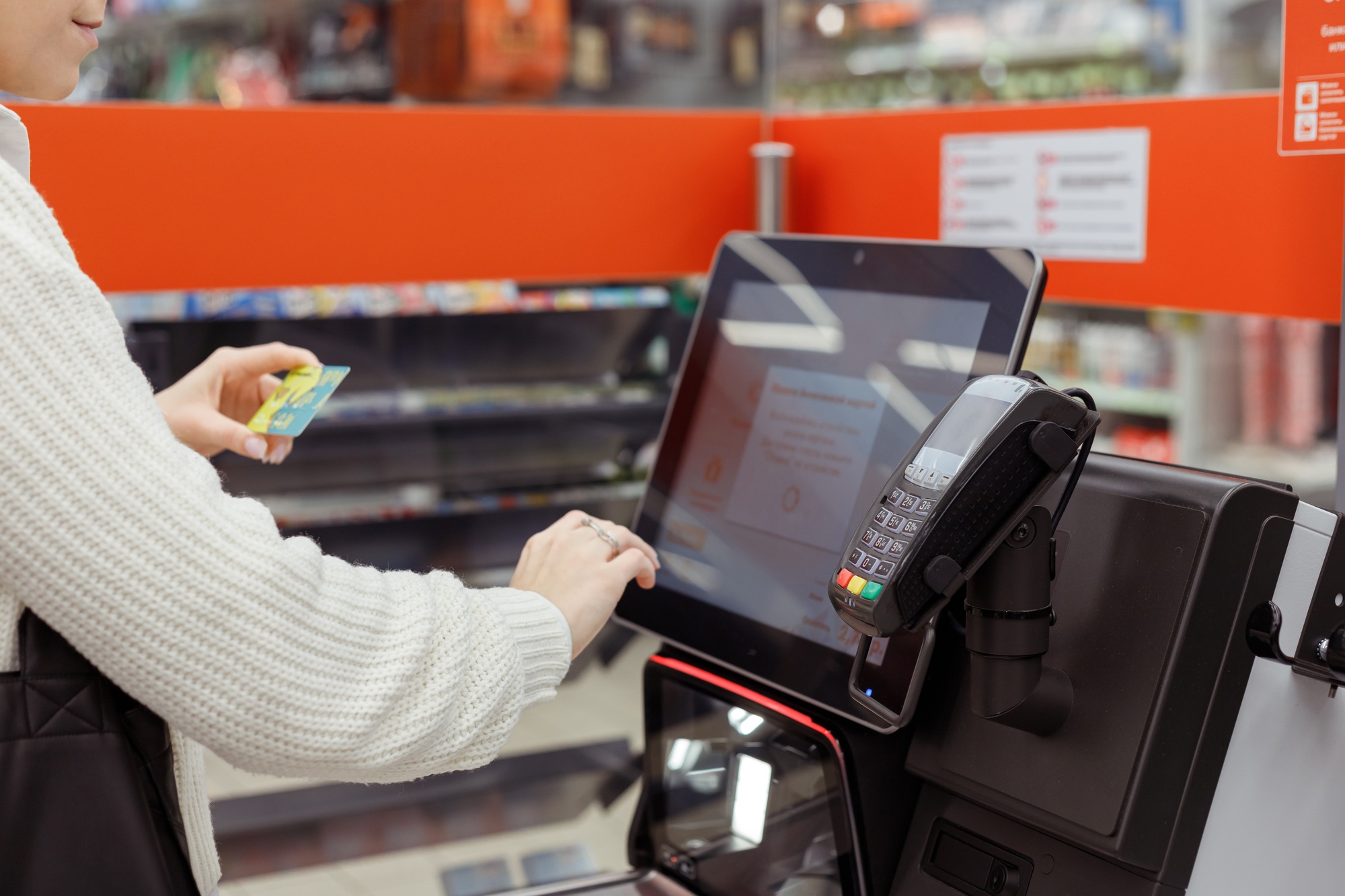Key Takeaways

- Vending Machine Potential: The vending machine industry offers a lucrative business opportunity, with over $23 billion in annual revenue in the U.S., making it accessible for aspiring entrepreneurs with low startup costs.
- Location Matters: Success largely depends on selecting high-traffic locations like schools, offices, and hospitals. Strategic placement enhances visibility and customer engagement.
- Product Variety: Offering a diverse range of products tailored to local consumer preferences—such as snacks, beverages, and healthy options—is crucial for maximizing sales and profitability.
- Embrace Technology: Implementing modern payment systems, including cashless options, is essential to cater to evolving consumer behaviors and increase sales potential.
- Market Research and Compliance: Conduct thorough market research and familiarize yourself with local regulations and permits to ensure compliance and reduce the risk of legal issues.
- Effective Marketing Strategies: Building a strong online presence and employing engaging marketing tactics, such as promotions and social media campaigns, can drive traffic to your machines and foster customer loyalty.
Have you ever thought about diving into the world of vending machines? This lucrative business offers a fantastic opportunity for passive income with relatively low startup costs. With the right strategies and a bit of planning, you can turn this simple concept into a thriving venture.
Understanding the Vending Machine Industry

The vending machine industry offers a lucrative opportunity for small business entrepreneurs. You can enter this sector with relatively low startup costs and minimal ongoing maintenance. The market generates over $23 billion annually in the United States alone, reflecting significant potential for profit.
You should know that target locations play a crucial role in success. High-traffic areas such as schools, offices, and hospitals attract more customers. Identifying the right spots for machine installation enhances visibility and sales.
Consider the variety of products available for vending machines. Options include snacks, beverages, and healthy choices. Researching consumer preferences in your chosen locations helps you stock machines with items that appeal to your target market. Small adjustments to inventory can significantly impact profitability.
Stay informed about industry trends. The shift towards cashless payments continues to grow, making it essential to equip your machines with modern payment systems. Embracing technology increases the likelihood of capturing sales from a broader audience.
Competition within the vending machine space can be fierce. Performing thorough market research allows you to identify competitors and understand their offerings. Differentiating your business through unique products or superior service can establish your brand in the market.
Understanding regulations and permits is vital. You need to comply with local health codes and obtain necessary licenses for operating vending machines. Familiarizing yourself with these compliance requirements can prevent future legal issues.
Entering the vending machine industry provides an accessible and potentially profitable path for aspiring entrepreneurs. Prioritize research, product selection, and compliance to establish a strong foundation for your small business.
Planning Your Vending Machine Business

Planning is essential when starting a vending machine business. It involves thorough market research and creating a solid business plan to ensure success in this competitive industry.
Conducting Market Research
Conducting market research helps you identify opportunities and understand the vending machine landscape.
- Assess the Market: Study the local vending machine industry to grasp consumer behavior, current trends, and competition. Identify market gaps and potential locations that lack vending machines.
- Target Audience: Analyze demographics and lifestyle traits of potential customers to determine which products enjoy high demand. Choose the ideal vending machine placements based on this information.
- Competitive Analysis: Examine existing vending machine businesses in your area to understand their offerings, pricing structures, locations, and marketing strategies. Leverage this analysis to find competitive advantages for your startup.
Creating a Business Plan
Creating a business plan outlines your vending machine business strategy, guiding your startup journey.
- Define Your Vision: Describe your business goals, mission, and vision for the future. Clear objectives provide direction and inspire growth.
- Financial Projections: Project income and expenses over the first three years. Include initial investments, machine costs, maintenance expenses, and expected revenue. Financial clarity strengthens your overall business strategy.
- Marketing Strategy: Develop a marketing plan detailing how you intend to attract customers. Highlight unique aspects of your vending machine business, such as diverse product selections or cashless payment options.
- Compliance and Regulations: Research and outline legal requirements, including licenses, permits, and health regulations. Ensure adherence to local laws to operate your vending machine business without issues.
By thoroughly planning and researching, you set the foundation for a successful vending machine business, positioning yourself as a competitive player in the market.
Selecting the Right Vending Machines

Choosing the right vending machines is crucial for your small business success. Machines directly influence product selection and profits. Consider these key types and factors when selecting your equipment.
Types of Vending Machines
- Snack Vending Machines: These machines are common and versatile, offering a range of snacks from sweet treats to savory options. They appeal to a wide audience and can generate consistent sales.
- Drink Vending Machines: Focused on beverages, drink vending machines offer soda, water, juice, and protein shakes. Beverage demand remains high, especially in busy locations like offices and schools.
- Combo Vending Machines: These machines combine food and drink options. Ideal for environments such as offices and hospitals, combo machines cater to diverse consumer preferences, enhancing convenience.
Factors to Consider When Choosing Machines
- Location Suitability: Evaluate high-traffic areas to maximize visibility and accessibility. Locations with consistent foot traffic, such as schools, gyms, and office buildings, enhance sales potential.
- Product Demand: Understand local consumer preferences to stock machines with appealing products. Research trends in snacks and beverages to meet customer needs effectively.
- Payment Options: Incorporate cashless payment systems. Offering mobile payments aligns with consumer behavior, especially among younger demographics.
- Maintenance Requirements: Assess maintenance needs of selected machines. Choose models known for reliability and ease of servicing to minimize downtime and ensure consistent operation.
- Initial Investment: Calculate the startup costs associated with each type of vending machine. Weigh the initial investment against potential profit margins to make informed decisions.
By considering these aspects, you can select vending machines that align with your small business goals and enhance your chances of success in the vending industry.
Finding Profitable Locations

Identifying profitable locations is crucial when starting a vending machine business. High foot traffic areas, suitable demographics, and minimal competition significantly enhance your chances of success.
Assessing Foot Traffic
Assess foot traffic to pinpoint potential locations for your vending machines. Focus on areas with consistent and high pedestrian movement. Ideal spots include:
- Offices: Business centers with numerous employees often seek quick snack and beverage options.
- Schools: Middle and high schools have a large student population that regularly looks for snacks.
- Hospitals: Healthcare facilities cater to visitors and staff who appreciate convenient food options.
- Gyms: Fitness centers attract health-conscious customers interested in protein snacks and drinks.
- Public Transportation Hubs: Train or bus stations expose you to a diverse audience constantly on the move.
Regularly analyze foot traffic patterns to determine peak hours, ensuring maximum exposure for your machines.
Negotiating with Property Owners
Negotiating with property owners requires clarity and professionalism. Approach owners with a clear proposal outlining benefits, such as:
- Increased Amenities: Your vending machines enhance the property by providing convenient food and drink options for tenants and visitors.
- Revenue Sharing: Propose a revenue-sharing agreement, offering a percentage of profits in exchange for machine placement.
- Maintenance Responsibility: Assure owners that you handle all maintenance, minimizing disruptions for them.
Identify locations with minimal competition. Research existing vending services in the area to capitalize on unmet demand. By securing the right locations, you position your small business for growth and profitability.
Managing Inventory and Operations

Managing inventory and operations is essential for your small business’s success in the vending machine industry. Efficient processes lead to optimized performance and increased profitability.
Stocking Your Machines
Stocking your machines with the right products ensures high sales and customer satisfaction. Start by analyzing sales data to identify your best-selling items. Choose a diverse product mix, including snacks and beverages that cater to local preferences. Rotate products regularly, introducing new items periodically to keep customers engaged. Use vending machine inventory management software to automate reordering when stock levels hit minimum thresholds. This reduces the risk of empty slots, ensuring customers find what they want.
Monitoring Performance
Monitoring performance helps you make informed decisions and adapt your strategies. Track sales trends and stock levels in real time using management software. Use this data to adjust your product assortment based on customer demand. Set specific performance metrics, such as sales per machine and inventory turnover rates, to evaluate your machines’ effectiveness. Perform regular maintenance checks to keep machines in optimal condition and minimize downtime. By actively managing your operations, you enhance your small business’s competitiveness and increase overall profitability.
Marketing Your Vending Machine Business

Engaging marketing strategies play a pivotal role in the success of your vending machine business. Implementing effective online and offline marketing techniques ensures your machines attract customers and maximize sales.
Online Presence and Social Media
Establishing a strong online presence boosts brand visibility. Create a professional website that showcases your vending machine offerings, locations, and contact information. Utilize search engine optimization (SEO) tactics to improve visibility in search results.
Leverage social media platforms such as Facebook, Instagram, and Twitter to connect with your audience. Share engaging content, including promotions, new product arrivals, and customer testimonials. Interactive posts can stimulate interest and invite customers to engage with your brand. Regular updates create a loyal following, enhancing customer retention.
Promotions and Discounts
Offering promotions and discounts can effectively increase traffic to your vending machines. Implement limited-time offers or bundle deals to encourage larger purchases. For example, a “buy two, get one free” promotion appeals to customers looking for value.
Consider launching loyalty programs that reward frequent buyers. These initiatives can foster repeat purchases and turn casual buyers into loyal customers. Advertise these promotions through social media and your website to maximize reach. Keep track of promoted items to monitor what works best for your audience.
By focusing on marketing your vending machine business, you create greater opportunities for growth and success in the competitive small business landscape.
Conclusion

Starting a vending machine business can be a rewarding venture if you approach it with the right mindset and strategies. By carefully selecting locations and understanding your target market, you can maximize your profits and create a steady income stream.
Investing time in market research and staying updated on industry trends will help you adapt to changing consumer preferences. Remember to focus on effective inventory management and marketing to keep your machines stocked with appealing products.
With dedication and a well-thought-out plan, you can establish a successful vending machine business that thrives in today’s competitive landscape. Take the leap and watch your entrepreneurial dreams come to life.
Frequently Asked Questions

What is a vending machine business?
A vending machine business involves placing machines that sell snacks, drinks, or other products in high-traffic areas. It generates passive income as customers purchase items directly from the machines without the need for constant oversight.
How much does it cost to start a vending machine business?
Startup costs vary, but they can be relatively low, ranging from a few hundred to several thousand dollars. Expenses include purchasing or leasing machines, stocking products, and securing locations.
How do I choose the right location for my vending machine?
Select high-traffic areas such as schools, offices, hospitals, or gyms. Observe foot traffic patterns and consider local demographics to ensure your machines are accessible to your target market.
What products should I sell in my vending machines?
Choose products based on local consumer preferences and the demographic in your location. Options include snacks, beverages, and healthy choices to cater to diverse tastes.
How can I ensure my vending machine business is profitable?
Research and analyze competitor offerings, maintain optimal inventory, and ensure machines are stocked with popular products. Effective marketing and strategic location choices also enhance profitability.
What payment methods should my vending machines accept?
Offer cashless payment options, like credit/debit cards and mobile payments, to capture a wider customer base. The shift towards electronic payments is growing in the vending industry.
How can I manage inventory and operations effectively?
Use inventory management software to automate reordering based on sales trends. Regularly rotate products, conduct maintenance checks, and assess sales data to optimize inventory levels.
What marketing strategies can help my vending machine business?
Establish a strong online presence with a website and social media. Use promotions, discounts, and loyalty programs to engage customers and encourage repeat purchases.
Do I need any licenses or permits for my vending machine business?
Yes, consult local regulations to determine necessary licenses and permits. Compliance with health codes and zoning laws is essential to avoid legal issues.
Is there a demand for vending machines in today’s market?
Yes, the vending machine industry generates over $23 billion annually in the U.S., with growing consumer interest in convenient and quick purchasing options.
Image Via Envato



